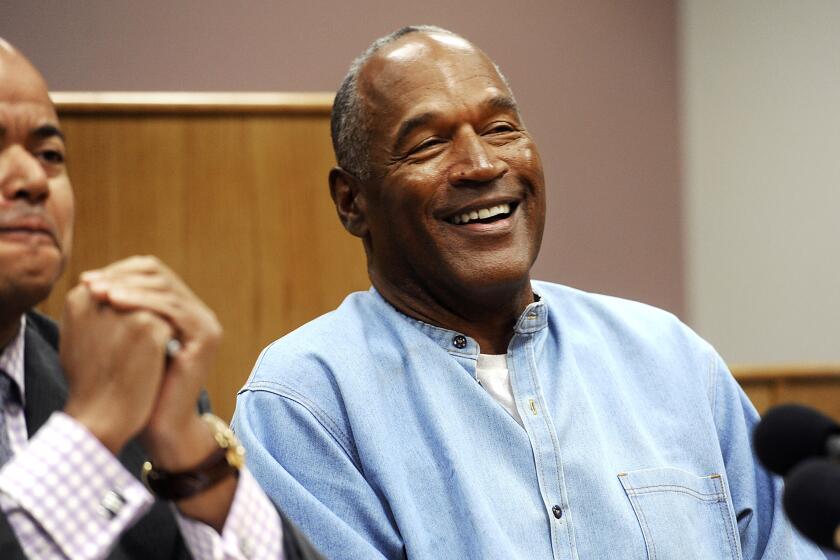Grocery Strike Animates Unions
The 70,000 striking grocery workers received a much-needed morale boost when the Teamsters union announced it would honor their picket lines. But the Teamster action has an even broader significance: It suggests a return to labor’s roots and the rebirth of labor solidarity.
Though it isn’t unprecedented to have one union respect the strike of another, union solidarity hasn’t been seen on this scale for quite a while. In the midst of a knock-down, drag-out economic struggle, the cooperation between these two unions could breathe new life into organized labor and transform the way strikes are waged.
Even before the Teamsters decision, the strike was buoyed by strong public support. To start, grocery workers are neither distant or anonymous. They are friends and neighbors, familiar faces, people you see every time you stop by a market. They are people the public can identify with. Close to two-thirds are women -- many single mothers -- and more than a third are Latino, Asian or African American. They aren’t getting rich on the job; at an average wage of $12 to $14 per hour and 30 hours of work per week, many are barely getting by. They are on the picket lines because they are fighting for their health-care coverage -- a demand that is also pretty easy to identify with.
Unions then built on this support in a way that reminds us labor is still a movement. Miguel Contreras, head of the Los Angeles Central Labor Council, has pulled together people from different religious, ethnic and community organizations.
Religious groups ranging from Baptists to Muslims have thrown in their support, initiating a week of walking prayer that brought religious leaders to the picket lines. The International Longshore Workers Union pulled 3,000 members off the San Pedro docks to hold a union meeting in front of an Albertson’s store. Unionized janitors staged a three-day hunger strike over Thanksgiving, and the entertainment unions also held rallies.
All of this support was important, but it was the Teamster decision to honor these picket lines that clearly upped the ante. More than 8,000 Teamsters have abandoned 10 state-of-the-art distribution centers and delivery routes to 860 stores throughout Southern California, choking far-flung supply lines. The supermarket chains responded by bringing in replacement workers, but it is not so very easy to replace thousands of skilled workers overnight. The replacements will probably get more effective if the strike continues long enough, but valued customers are getting comfortable shopping elsewhere -- a long-term disaster for businesses that depend on loyalty and service.
Why have the Teamsters waded into the fray? They understand that if health-care coverage is sacrificed in these negotiations, the chains will demand the same or more from them in their own contract talks two years down the road. The choice was to join the grocery clerks in support of the picket line today or join the clerks with less health coverage in two years.
Should the rest of us care? Absolutely. If unionized workers are stripped of effective health coverage today, union and nonunion employers alike will have a powerful incentive to cut costs in the same way tomorrow, leaving many more workers uninsured and vulnerable. In effect, the low road to competitiveness could become a superhighway.
The threat here is not one of the store moving to Mexico or China but rather of a Wal-Mart moving in down the block. The danger, although hardly insurmountable, is real. If the unions lose, it unravels the American dream. The reward for larger size and greater efficiency becomes lower wages and fewer benefits. (That might benefit the corporation next quarter, but it is hardly the basis for economic success in the long run.)
The Teamsters, the United Food and Commercial Workers union and their allies have given new life to the oldest of labor slogans: “An injury to one is an injury to all.” The ultimate beneficiary could well be the rest of us.
More to Read
Start your day right
Sign up for Essential California for news, features and recommendations from the L.A. Times and beyond in your inbox six days a week.
You may occasionally receive promotional content from the Los Angeles Times.






